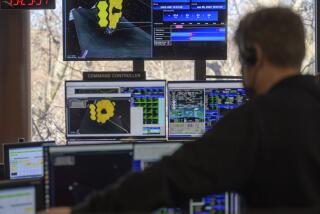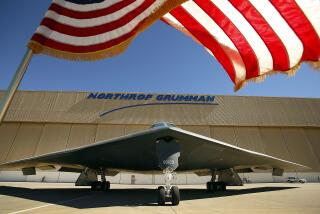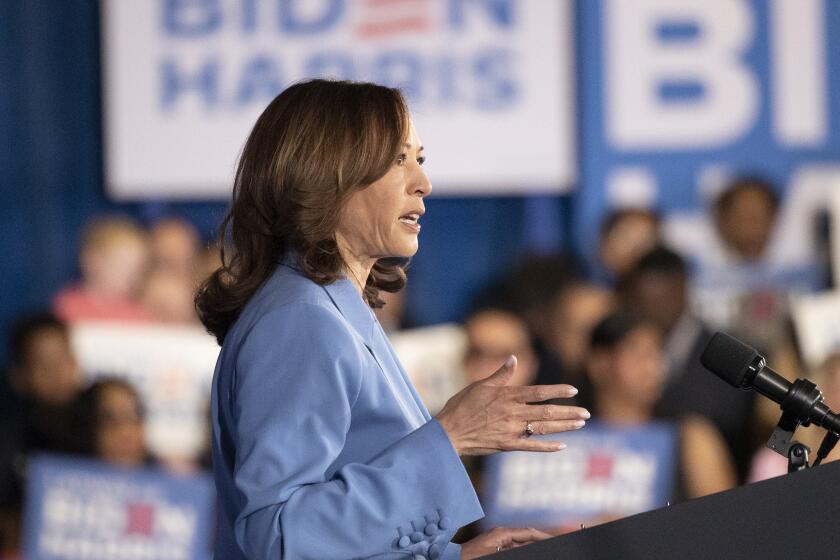Northrop to get fee over tanker deal
Northrop Grumman Corp. is entitled to a termination fee after the U.S. withdrew its contract to build aerial refueling tankers, the Pentagon’s top weapons buyer said Thursday.
The Defense Department will negotiate with Century City-based Northrop for a fee in the range of “tens of millions of dollars,” Undersecretary of Defense John J. Young Jr. said.
“They are entitled to certain amounts of money,” Young said. “We are certainly going to negotiate with them aggressively and try not to pay anything more than we have to, but unfortunately, in my opinion, they are entitled to something.”
Northrop won an initial contract Feb. 29 for development and purchase of four test aircraft for $1.5 billion and options of $10.5 billion to build 64 aircraft. The contract included options to build a total of 179 tankers valued at $35 billion. Competitor Boeing Co. successfully protested the award. The U.S. plans to rebid the contract once a new administration is in office.
“We haven’t entered into discussions yet that would lead to an appropriate settlement,” Northrop spokesman Randy Belote said. “We are waiting for instructions from the Air Force.”
Air Force spokeswoman Lt. Col. Karen Platt had no immediate comment.
The termination fee would be to reimburse costs incurred by Northrop to develop its tanker candidate, which was based on the Airbus A330 commercial jetliner. Northrop had committed to delivering the first plane to the Pentagon two years ahead of schedule.
“They were able to grab an airplane coming off the production line and immediately make it available to start testing and fitting for modification,” Young said of the Northrop proposal.
Compared with Boeing, Northrop offered a shorter development program that cost less, Young said. Chicago-based Boeing based its bid on a modified 767 commercial plane.
“Northrop was very much using the existing airframe, whereas Boeing’s proposal involved assembling parts of existing airplanes to create essentially a new variant,” Young said. Both aircraft were ranked by the Air Force as “technically outstanding,” he said.
Northrop proposed spending $12.5 billion for the development phase and first 68 aircraft, Young said. The government evaluated Boeing’s cost proposal at $15.4 billion for the development program and the first 68 aircraft, he said.
“The Boeing proposal was more expensive and delivered later and provided less capability,” Young said. “Frankly, the Boeing aircraft was smaller and should have been cheaper.”
Boeing’s cost estimate was “significantly higher” than an independent analysis of aircraft alternatives Congress required the Pentagon to perform before it launched the competition. Northrop’s bid price was “comparable” to what the analysis estimated, Young said.
Boeing spokesman Dan Beck declined to comment on Young’s remarks but said the company “is looking to the future and is looking forward to a renewed tanker competition when the Pentagon proceeds. As we go through this interim period we’re not interested in revisiting the past.”
More to Read
Inside the business of entertainment
The Wide Shot brings you news, analysis and insights on everything from streaming wars to production — and what it all means for the future.
You may occasionally receive promotional content from the Los Angeles Times.










